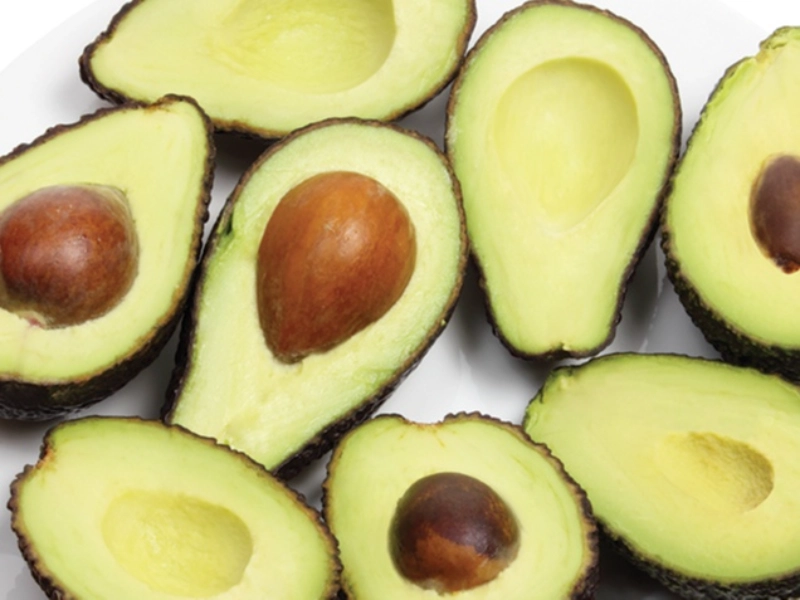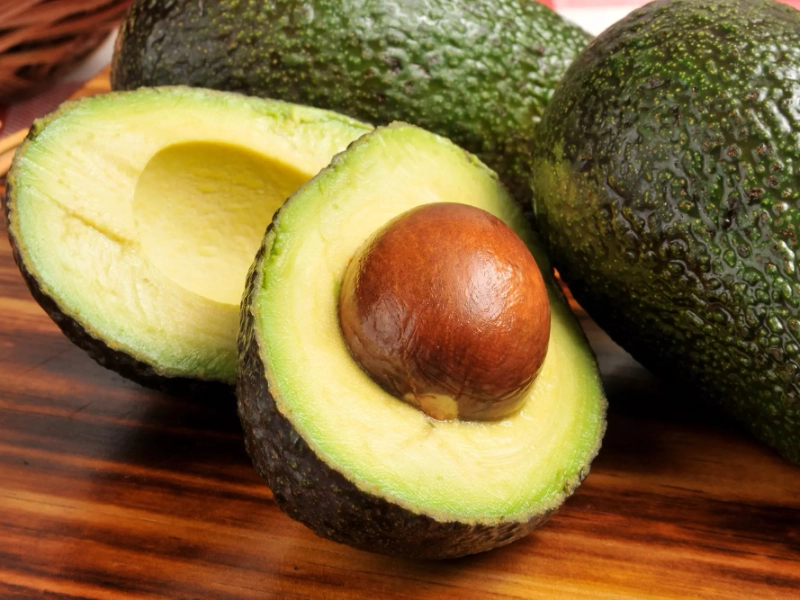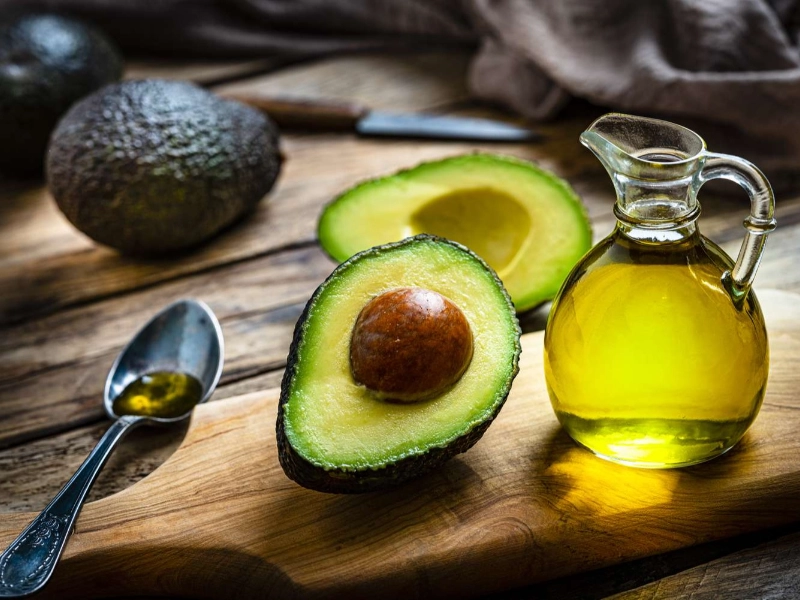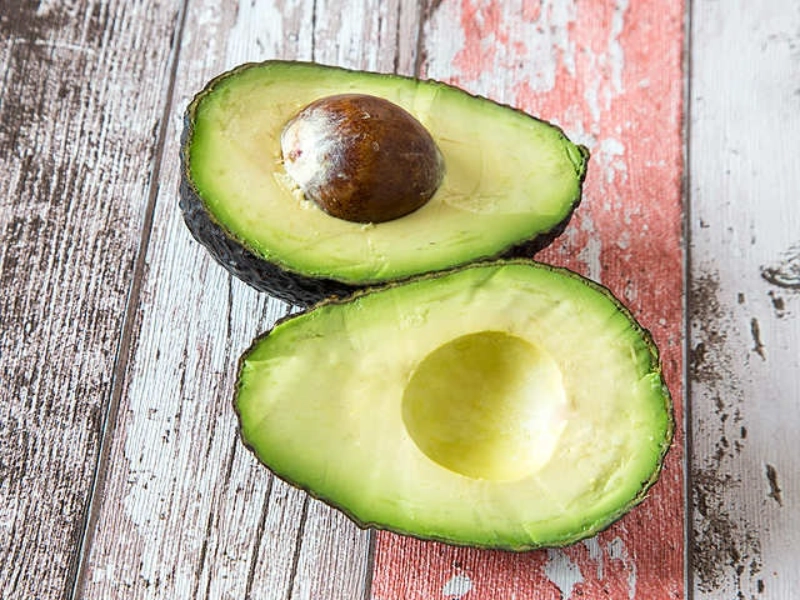Why Some Doctors Should Not Eat Avocados
Avocados are well known for being rich in beneficial fats, but they also provide a variety of other important elements, including magnesium, potassium, folate, vitamin C, vitamin B6, and vitamin E. They also contain phytosterols, which help lower triglycerides and cholesterol, and are rich in soluble fiber, which helps prevent constipation and promote regularity.
1. High cholesterol content.

2. It's high in fat.
 Avocados are an excellent source of "good fats," as defined by health organizations. The monounsaturated and polyunsaturated fats found in these foods may lower cholesterol in people with high cholesterol levels. But they also contain saturated fats, which are associated with a higher risk of diabetes and heart disease.
Compared to other dietary sources, such as olive oil, avocados contain more than 20 times the fat-soluble vitamin phytosterol. Plant substances called phytosterols have been shown to lower blood cholesterol levels and may help prevent heart disease. The
potassium found in avocados reduces blood pressure by relaxing blood vessels and lowering sodium levels. They are also a great source of vitamin C and folate. Avocados are also a good source of fiber, which aids digestion and prevents constipation. Avocados also contain lutein, a pigment that improves cognitive performance by crossing the blood-brain barrier. A 2020 study published in the International Journal of Psychology highlights this benefit.
Avocados are an excellent source of "good fats," as defined by health organizations. The monounsaturated and polyunsaturated fats found in these foods may lower cholesterol in people with high cholesterol levels. But they also contain saturated fats, which are associated with a higher risk of diabetes and heart disease.
Compared to other dietary sources, such as olive oil, avocados contain more than 20 times the fat-soluble vitamin phytosterol. Plant substances called phytosterols have been shown to lower blood cholesterol levels and may help prevent heart disease. The
potassium found in avocados reduces blood pressure by relaxing blood vessels and lowering sodium levels. They are also a great source of vitamin C and folate. Avocados are also a good source of fiber, which aids digestion and prevents constipation. Avocados also contain lutein, a pigment that improves cognitive performance by crossing the blood-brain barrier. A 2020 study published in the International Journal of Psychology highlights this benefit.
3. It's high in calories.
 According to the Cedars-Sinai health agency, avocados are high in calories, but most of those calories come from heart-healthy fats. The fat in avocados is also a good source of vitamins A and E, potassium, and vitamin K. The fat in
avocados is also a good source of phytonutrients, such as cholesterol-lowering beta-sitosterol and omega-3 fatty acids. Dietary fiber is also found in the fruit. Its soluble and insoluble fiber helps to facilitate the passage of waste through the digestive system. The
dietary fiber in avocados helps promote regularity and reduces the chances of constipation. According to nutritionist Christian Morley, "Avocados are a great way to get more fiber into your diet, especially when combined with other fruits and vegetables." She suggests trying out her avocado smoothie bowl recipe, mixing the fruit into toast, dips, or salads. (Just be careful how much you eat.) Avocados can be enjoyed in savory and sweet recipes, like this one from Minimalist Baker made with bananas, vegetables, protein powder, and non-dairy milk.
According to the Cedars-Sinai health agency, avocados are high in calories, but most of those calories come from heart-healthy fats. The fat in avocados is also a good source of vitamins A and E, potassium, and vitamin K. The fat in
avocados is also a good source of phytonutrients, such as cholesterol-lowering beta-sitosterol and omega-3 fatty acids. Dietary fiber is also found in the fruit. Its soluble and insoluble fiber helps to facilitate the passage of waste through the digestive system. The
dietary fiber in avocados helps promote regularity and reduces the chances of constipation. According to nutritionist Christian Morley, "Avocados are a great way to get more fiber into your diet, especially when combined with other fruits and vegetables." She suggests trying out her avocado smoothie bowl recipe, mixing the fruit into toast, dips, or salads. (Just be careful how much you eat.) Avocados can be enjoyed in savory and sweet recipes, like this one from Minimalist Baker made with bananas, vegetables, protein powder, and non-dairy milk.
4. It contains a lot of sodium.
 Avocados are a delicious and healthy fruit that is rich in many phytonutrients, vitamins, and minerals. They are also a good source of fiber and beneficial fats. People who are allergic to avocados should avoid them. Avocados also contain FODMAPs, which can cause stomach problems in sensitive people.
In addition to good fats, avocados are also rich in dietary fiber and vitamin C. They also contain copper and potassium. Avocados are also a source of phytochemicals. These phytochemicals are antioxidants that are associated with a lower risk of heart disease.
Avocados contain only 1 gram of saturated fat and 0 grams of salt per serving. They are a low-calorie dish that fits into a variety of healthy dietary regimens. In fact, recent studies have shown that eating avocados improves nutrient intake and diet quality compared to not eating them. Researchers suggest that substituting avocados for some foods high in saturated fats may help reduce the risk of heart disease.
Avocados are a delicious and healthy fruit that is rich in many phytonutrients, vitamins, and minerals. They are also a good source of fiber and beneficial fats. People who are allergic to avocados should avoid them. Avocados also contain FODMAPs, which can cause stomach problems in sensitive people.
In addition to good fats, avocados are also rich in dietary fiber and vitamin C. They also contain copper and potassium. Avocados are also a source of phytochemicals. These phytochemicals are antioxidants that are associated with a lower risk of heart disease.
Avocados contain only 1 gram of saturated fat and 0 grams of salt per serving. They are a low-calorie dish that fits into a variety of healthy dietary regimens. In fact, recent studies have shown that eating avocados improves nutrient intake and diet quality compared to not eating them. Researchers suggest that substituting avocados for some foods high in saturated fats may help reduce the risk of heart disease.








